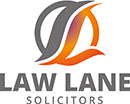What is a Conditional Fee Agreement?
A Conditional Fee Agreement is an agreement between you and your solicitor where you only pay for your solicitors’ fees on the condition that your claim is successful, and you receive compensation as a result of your claim. However, if your claim is unsuccessful, under the Conditional Fee Agreement, you will not be required to pay for the legal work that your solicitors carried out.
- What happens if your case is won?
- If your case is successful, the agreed legal costs will be paid to your solicitors along with a “success fee”.
- The success fee is capped at 25% which will be deducted from your final settlement amount.
- What happens if your case is lost?
- If your case is unsuccessful, you will not be required to pay your solicitor’s legal costs.
What is Legal Expenses Insurance (‘LEI’)?
Legal Expenses Insurance is typically sold as an optional ‘add-on’ when purchasing an insurance policy, for example, home insurance or vehicle insurance. It is meant to cover uncertain risks, not inevitable or existing events. It can be used to fund the cost of defending your claim, bringing your case to court, or can be paid to access legal advice.
What is After the Event Insurance (‘ATE’)?
It is a policy that can be purchased after an accident/incident. This is usually purchased in the absence of a LEI.
What is insured under an ATE?
- Legal costs and disbursements – the ATE cover is provided if you have to pay all or part of your opponent’s costs and disbursements as well as your own solicitor’s disbursements.
- Insurance Premium – ATE cover is provided to pay your insurance premium if you do not recover any damages or compensation.
What is not insured under an ATE?
- Prior Costs – Any disbursements and opponent’s costs incurred before the commencement of the ATE policy unless the ATE policy company agrees
- Prior Agreement – Any disbursements incurred without your solicitors’ or the ATE policy company’s prior agreement
- Solicitor’s Own Costs – Your solicitor’s fees and charges
- Breach of conditions – Any disbursements and opponent’s costs where any of the conditions in the ATE policy have been breached by you
- Reasonable cause of action – Any claim which has been struck out or where the claim has no grounds for bringing the proceedings, the proceedings are an abuse of the court process, or your conduct is likely to obstruct the just disposal of the proceedings
- Failure to abide your responsibilities – Any disbursements and opponent’s costs where any of the requirements under your responsibilities have been breached by you
Please note that this list is a non-exhaustive list.
With the purchase of an ATE policy, you will not be required to pay for your opponent’s legal fees and your own costs and/or disbursements including the cost of the ATE as you will be self-insured.
Risks of Purchasing ATE insurance late in the process:
- It is possible to purchase ATE insurance at a later stage, but it is important to note that the general disadvantage of insuring late is that a high level of costs will have been incurred by this time and the risks of losing are considerable. Therefore, the ATE insurance premium will be very high in comparison to what is normally a fixed standard premium if the ATE insurance policy is purchased at the outset.
It is not a legal requirement to take out an ATE insurance policy, but it is strongly recommended to do so as you may be exposed to unnecessary financial risk if your claim is unsuccessful.
Conclusion:
The combination provides you total protection if your claim is unsuccessful:
- Conditional Fee Agreement – you do not need to pay your solicitor’s basic charges or success fee
- After the Event Insurance – you do not need to pay your opponent’s legal fees and your costs and/or disbursements
There are, however, exceptions, to the above if you are fundamentally dishonest in which case your claim may be dismissed and/or you may be liable to incur both your costs and disbursements as well as your opponent’s. This is because the Qualified One-Way Cost Shifting (QOCS) principle will be disapplied if you are found to be fundamentally dishonest (e.g. lying, exaggerating, manipulating the truth)
Need help?
Here at Law Lane Solicitors, we have the experience and expertise to advise you on your personal injury claim. If you would like to speak to one of our Personal Injury specialists, please call us on 0207 870 4870 today.
Disclaimer
Law Lane Solicitors Ltd has provided the materials on this website for informational purposes only which does not, and cannot, constitute a legal advice. The use of this site does not create a lawyer-client relationship. Additionally, email or other communication with our representatives through this site should not be considered confidential or privileged.
